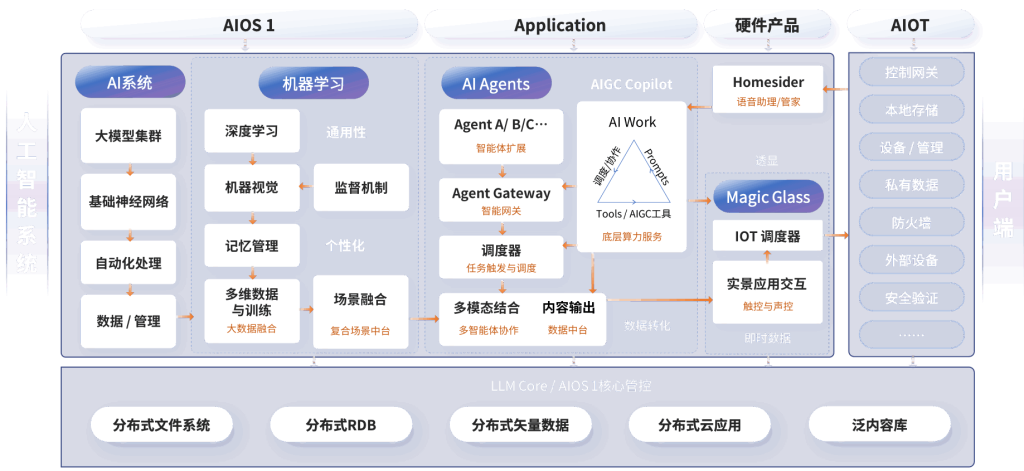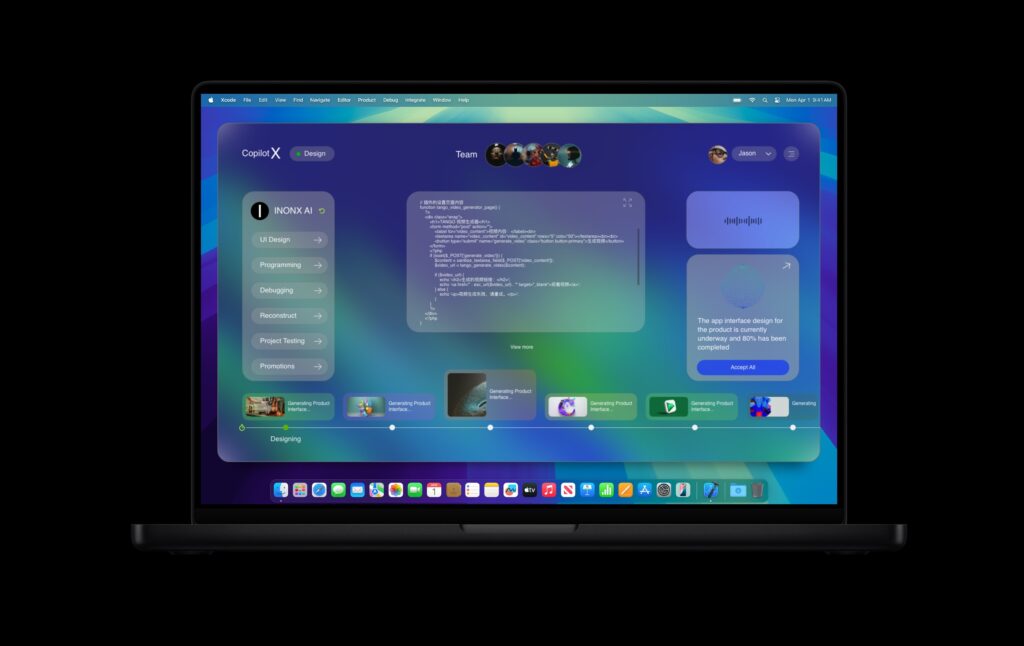As 2024 unfolds, the landscape of Artificial Intelligence (AI) is witnessing unprecedented growth, driven by the introduction of cutting-edge large models, innovative tools, and methodologies that address specialized use cases. Major tech companies are racing to enhance their offerings, providing solutions that extend far beyond traditional applications. This article highlights some of the most significant advancements, including the launch of Google Gemini 1.5 Pro, emerging technologies in AI, and innovative products catering to various industries.
In a significant breakthrough, Google has recently unveiled Google Gemini 1.5 Pro, an advanced large language model (LLM) that excels in multimodal capabilities. This model marks a crucial step forward in AI’s evolution, providing robust functionalities that integrate both text and visual data seamlessly. One of the hallmark features of Gemini 1.5 Pro is its extended context understanding, which allows it to process vast amounts of information, understanding user intent with remarkable accuracy. With up to 140,000 tokens of context, this AI model can generate much more coherent responses compared to its predecessors, fundamentally enhancing user experience in applications like chatbots, virtual assistants, and educational tools (source: TechCrunch).
.
In addition to Google’s advancements, several companies have introduced tools and APIs that empower businesses across various industries to harness the power of AI. For instance, Indico’s recent launch of specialized APIs is aimed at revolutionizing B2B marketing by providing businesses with enhanced data analytics, sentiment analysis, and persona targeting. These tools allow marketers to deliver highly personalized content to users, effectively reaching and engaging their target audiences. The integration of AI in marketing strategies is transforming how companies approach consumer engagement, measurement of campaign effectiveness, and the overall customer journey (source: Marketing Dive).
.
Emerging technologies are also addressing the pressing need for more reliable and debiased large language models. With growing concerns about biases perpetuated by AI systems, companies are innovating ways to ensure fairness and accuracy in AI outputs. New training techniques that utilize diverse data sets and advanced feedback mechanisms are being employed to reduce biases in AI systems. This development is critical as industries, particularly healthcare and public services, depend on AI-driven insights to make decisions that affect millions of lives. A recent report highlights how new debiasing methodologies have significantly decreased bias metrics in LLMs by up to 40%, showcasing the potential of these innovations to enhance trustworthiness (source: MIT Technology Review).
.
The enterprise sector is seeing a wave of innovative AI products that cater specifically to business automation. For example, companies like UiPath have enhanced their Robotic Process Automation (RPA) tools with sophisticated AI capabilities to enable automated workflow management. This integration allows for improved operational efficiency by automating routine tasks such as data entry, customer support, and inventory management. These automated solutions can result in substantial cost savings for businesses while allowing employees to focus on high-value tasks that require human intelligence and creativity (source: Forrester).
.
In cybersecurity, AI innovations are at the forefront of major advancements designed to combat increasingly sophisticated threats. Numerous organizations are developing AI-driven threat intelligence platforms that leverage machine learning algorithms to predict and neutralize potential cyber-attacks in real time. Recent advancements include the launch of new cybersecurity frameworks that prioritize autonomous behavior planning, enabling systems to make independent decisions based on machine learning insights (source: Cybersecurity Insider). These systems can analyze patterns of behavior, detect anomalies, and trigger automatic responses, ensuring a dynamic and proactive defense strategy.
.
The education sector is also witnessing transformative changes due to advancements in AI. Tools such as AI-powered plagiarism checkers and personalized learning platforms are helping educators tailor their approach to better meet student needs. AI models are increasingly being used to create adaptive learning environments that adjust the complexity and style of content to accommodate individual learning paces. Platforms like Knewton have introduced AI services that personalize content and assessments, fostering a more engaging and effective educational landscape (source: EdTech Digest).
.
In the realm of creative industries, AI is being harnessed to streamline content creation and enhance artistic expression. Services like Runway’s AI-powered tools provide creatives with the ability to generate high-quality video content and digital art efficiently. These tools leverage advanced AI models that allow artists to manipulate existing footage, generate new visuals, and even draft scripts with just a few prompts. This integration opens new avenues for creativity, allowing creative professionals to experiment rapidly and push the boundaries of traditional artistic methods (source: The Verge).
.
Furthermore, advancements in AI are shaping the future of healthcare. The sector has seen a surge of AI models designed to assist in diagnostics, patient monitoring, and drug discovery. Notable examples include IBM Watson Health’s AI-powered diagnostic tools that analyze patient data for quicker and more accurate diagnoses. With the aid of AI, medical professionals can delve deeper into patient records, identifying patterns and correlations that might otherwise go unnoticed, thus enhancing patient care through more informed clinical decision-making (source: Healthcare IT News).
.
As we look at the cross-industry impact of AI advancements, it is evident that the 2024 AI landscape holds limitless potential. From empowering businesses with cutting-edge tools that streamline operations to ensuring fair and unbiased user interactions, the possibilities are expanding. Each advancement highlights the integral role AI is playing in reshaping industries, enhancing productivity, and addressing modern challenges faced in diverse fields such as marketing, cybersecurity, and education.
.
In conclusion, the recent developments in AI, such as the launch of Google Gemini 1.5 Pro, new specialized tools like those from Indico, and innovative products across sectors underscore a pivotal moment in technology. They exemplify the strides we are making towards a future where AI not only supports but enhances human life in every facet. As companies innovate and integrate advanced AI into their operations, the impact of these technologies will undoubtedly be felt for years to come, driving efficiencies, improving outcomes, and shaping a smarter world.
**Sources:**
1. TechCrunch – Google Gemini 1.5 Pro Overview
2. Marketing Dive – Indico Launches AI for B2B Marketing Tools
3. MIT Technology Review – Report on Bias Reduction in AI
4. Forrester – Business Automation Tools and AI Integration
5. Cybersecurity Insider – Autonomous Behavior Planning in Cybersecurity
6. EdTech Digest – AI’s Impact on Education
7. The Verge – Runway AI Products for Creatives
8. Healthcare IT News – IBM Watson Health Advancements in AI Diagnostics

























